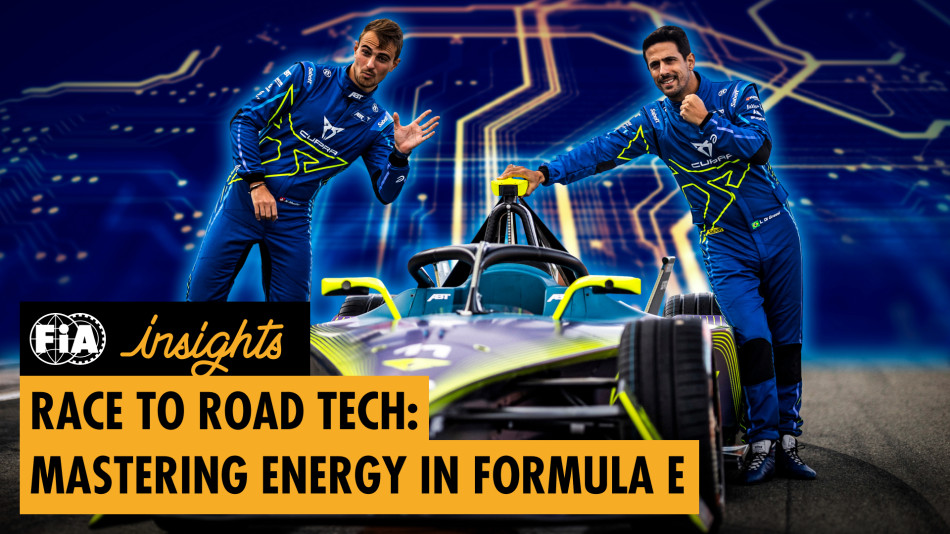NEW FILM GOES BEHIND-THE-SCENES IN ABB FIA FORMULA E WORLD CHAMPIONSHIP
'FIA Insights' episode lifts the lid on the manifold elements that make the all-electric series such an enduring success story.

The latest episode of FIA Insights – entitled ‘Race To Road Tech: Mastering Energy in Formula E’ – is now available to view, shining a spotlight on technology transfer from race to road, energy management and telemetry in the electric single-seater series.
The FIA has a wide involvement in sporting, safety and technical matters in the ABB FIA Formula E World Championship. In order to keep costs under control, the governing body appoints a host of single-suppliers to build the cars, while allowing manufacturers to produce their own powertrains – the area of greatest relevance when it comes to replicating innovations in road-going vehicles.
“For Jaguar, that original ethos of proving technology on the race track and bringing it to consumers has always been core to how we approach racing,” reveals James Barclay, Team Principal of Jaguar TCS Racing. “The technical regulations should be aligned to our future road car strategy, and that is the case in Formula E.”
“You can really learn a lot from a car that is pushed to high performance, like Formula E, that you can transfer to normal electric vehicles,” agrees Tommaso Volpe, Barclay’s counterpart at Nissan Formula E Team.
“Formula E is changing the way people see electric vehicles, in a way that they are perceived to be more exciting. Electrification only ten years ago was considered a technology for slow cars, but the reality is that it can deliver amazing performance and at the same time be very efficient.”
The short film similarly touches on the subjects of energy management and regeneration – an essential element of Formula E’s racing and one in which the drivers play a central role, as explained by Nissan’s Sacha Fenestraz – while Season 3 champion Lucas Di Grassi lifts the lid on the topic of telemetry.
With teams not privy to data during races, much of the strategy is in the hands of the drivers, who in addition to focussing on the job behind the steering wheel, must simultaneously keep their engineers updated about the car’s key parameters via encoded messages – a particular characteristic of the championship, and another contributory factor to Formula E’s enduring reputation as one of the most competitive and compelling series’ around.

 Facebook
Facebook Twitter
Twitter






